Welcome to the fascinating, exciting world of intermittent fasting for vegans! In this guide we take a look at the power of plant-based nutrition when it’s coupled with the magic of fasting.
Fasten your seatbelt, because we’re about to reveal the ultimate guide to intermittent fasting for vegans, filled with mouthwatering recipes and fasting tips that will leave you nourished and buzzing.
Let’s dive in!
Who is Vegan Fasting For?
Vegan fasting is an amazing way to improve health, support longevity, burn fat and lose weight.
Being vegan doesn’t mean eating healthy. While you can fast and eat any diet, the best results come when you eat a healthy balanced diet without processed foods, refined flours and sugars and plenty of plant protein.
If you’re prepared to challenge your normal routine and take time to learn how to be comfortable doing things differently, and if you want to reap the rewards and benefits of practising intermittent fasting, then it’s for you.
Who isn’t Intermittent Fasting for?
There are some people who should treat intermittent fasting with caution and others who should avoid it all together.
- Diabetes, hypoglycaemia and other metabolic disorders. If you are diabetic, you should seek the support of your health provider before embarking on a fasting program.
- Pregnant or breastfeeding women should avoid intermittent fasting as they have extra nutritional needs.
- Children and adolescents: they need full nutrition to support their growth and development.
- Underweight or people struggling to maintain their ideal weight: avoid intermittent fasting as it can cause additional weight loss.
- Anyone suffering with nutritional deficiencies: the deficiencies should be addressed and corrected before embarking on a fasting protocol.
Note: Intermittent fasting can be used as a powerful tool for helping manage diabetes type 2 by increasing sensitivity to insulin, but it also causes drops in blood sugar levels and can therefore be risky to do without support.
What is Intermittent Fasting for Vegans?
Overview: intermittent fasting for vegans is about choosing to eat your vegan meal at specific time-intervals for optimum health. The digestive system gets a complete rest and the body switches to burning fat instead of carbohydrates for producing energy. In the eating period, the chosen food should be nutritionally balanced vegan food promoting optimum health – such as a WFPB (whole foods plant based) diet – which is inherently nutritionally balanced and provides its own array of health benefits. Health benefits from intermittent fasting include but are not limited to: increased sensitivity to insulin, lowered blood sugar levels, reduced inflammation, enhanced cellular repair, improved gut, heart and brain health, as well as weight loss and a reduction of overall fat due to fat-burning mechanisms. It’s advisable for vegans to take vitamin B12 and a multivitamin supplement.
Intermittent fasting focuses on when you eat instead of what you eat (there are a lot of misconceptions about that – see in FAQs below).
It’s a super powerful tool for weight loss as well as for general health, wellbeing and longevity.
Meaning you probably get to live longer.
Yaay! Who doesn’t want that?
Intermittent fasting isn’t the same as juice-fasting or doing a d-tox fast, because those two methods are about giving the system a break from solid food. IF breaks from any nutrition that would cause the digestive system to start working.
Anybody who practises intermittent fasting should consider the balance of nutrients they’re getting from their food, and for a vegan it’s the same.
Because of the reduced eating-window it becomes even more important to get enough nutrients in each meal.
There are different methods of intermittent fasting from short fasting windows to longer. The most common way to start is with a short fasting window and gradually build it up.
What are the Benefits of Intermittent Fasting on a Healthy Fully Balanced WFPB Diet?
Intermittent fasting has a huge array of benefits. They are still being investigated and are therefore all offered as suspected benefits of intermittent fasting rather than definitive.
- longevity
- weight loss
- burn fat
- cellular autophagy: recycling of damaged cells
- increases insulin sensitivity
- reduces inflammation
- heart health
- prevents against cancer
- improves brain health and protects against Alzheimer’s disease
- increased energy
- better relationship to food/hunger
- improved willpower
- more productivity and time in a day – less meal prep
- no more counting calories
- better gut health and increased microbiome
- clearer thinking
Fasting Effects on Cells and Hormones
- Insulin sensitivity is increased and insulin levels drop, fat is more easily accessed and burned for energy when insulin is low (1).
- Cellular repair and autophagy is activated to promote cell function and cell survival. Autophagy refers to the disposal and recycling of damaged proteins within the cells helping to counteract the ageing process. (2)
- Human growth hormone increases dramatically, helping fat loss and muscle growth. (3)
- Gene expression is altered with higher presence of genes associated with longevity and protection against disease (4).
Dr Andreas Michalsen on the Clinical Benefits of Intermittent Fasting
Types of Intermittent Fasting
The most popular type of IF is 16:8 – a 16 hour fasting window with an 8 hour eating window, because it fits very intuitively into our lifestyle.
Just by delaying or skipping breakfast and bringing the evening meal forward you automatically get a 16:8 food-fast relationship.
Once you’re doing 16:8 with ease, you can extend the fasting window to a 18:6 or 20:4.
There isn’t any proof to confirm whether 18:6 or 20:4 are any superior to 16:8 but you may find it feels superb for you. It’s a matter of trying things out and adjusting as you go.
One of the things I love about fasting is its flexibility.
It doesn’t feel like you’re following a set of rules. You just make sure you go a minimum of 16 hours without eating and the rest takes care of itself.
Intermittent Fasting Protocols for Vegans
Here is a look at the different fasting windows and the most popular ways to incorporate IF into your lifestyle.
Most Popular: 16:8
For each 24 hour period you fast for 16 hours and eat for 8.
The exact timetable you choose is up to you, but most people find it easiest to either skip breakfast or have a late breakfast.
By bringing the evening meal earlier you then create a 16 hours fast, and once you get used to it, it becomes second nature.
No drastic change in your routine except not eating late at night.
The most popular times to choose for the eating window are from 11-7 p.m., 12-8 p.m. or 1-9 p.m.
Meaning you choose to have your last food of the day at 7 p.m. or 8 p.m. or 9 p.m. respectively.
Personally, I find it easiest to skip breakfast altogether and eat my first meal of the day at lunchtime.
And that might be at 1p.m., 2 p.m. or even 3 p.m. depending on my schedule.
For me, it’s easy to go without food all morning.
But even if you don’t think it sounds easy, you can train yourself to go without food and not feel starving.
18:6 or 20:4
You might choose to extend your fast for a longer period of eighteen hours and adopt the 18:6 routine.
It works exactly the same way as 16:8 but gives the benefits of longer fasting and a shorter eating window.
According to studies, you get all the same benefits when you fast for 16 hours, so it isn’t necessary to extend the period.
But I like it that way. And it gives you the chance to experiment with your relationship to food even more.
Alternate Day Fasting or 5:2
This is when you choose to eat normally every other day or for 5 days a week and severely restrict the calories you eat (to between 500-600 calories as a rough guide) on other days.
Normally this type of fasting is practised on alternate days or for 2 days a week.
For me, this option’s a completely different concept to the every day type of intermittent fasting, because on the days when you’re fasting, you count calories.
For me, one of the main attractions and advantages of intermittent fasting is the absence of calorie counting.
Also, alternate day fasting could promote an obsession around food as you yo-yo from eating days to non-eating days and counting calories to not counting calories.
For this reason, I prefer to do daily intermittent fasting or OMAD, which is one meal a day.
With OMAD you can do it a couple of times a week but you don’t need to count your calories because you’re only eating one meal.
Having said all that, some people choose to do alternate day fasting and swear by it – but I’m not one of them.
24 hour fasting
24 hour fasting also comes under the intermittent fasting umbrella, but it’s different to the every-day type of fasting because your body will be hungry on the day you fast.
With other types of fasting the body has a chance to get used to it and easily switches over to burning fat for energy (ketosis).
With prolonged fasting, the first day is the hardest, so if you choose to do a 24 hour fast you’re choosing the most difficult day, over and over.
Which is fine once you’re a seasoned practitioner of fasting, but I wouldn’t recommend it as a way to start out with.
OMAD
OMAD stands for one meal a day and is the longest type of fasting window in the intermittent fasting category.
It isn’t usually grouped in with IF as it’s often referred to on its own, kind of hanging between IF and prolonged fasting.
But I think it’s important to consider when considering all the options for practising IF, and personally I find OMAD wonderful.
The beauty of OMAD is that it works best when not practised every day (because otherwise the body anticipates and adjusts, slowing down the benefits/results).
So you could choose to do 16:8 4-5 days of the week and OMAD the other 2-3 days.
What time you eat your OMAD meal is up to you, but the most popular time is late afternoon to early evening.
Vegan Intermittent Fasting for Weight Loss
Intermittent fasting is an incredibly powerful tool for weight loss. It can burn that stubborn fat that you thought you couldn’t shift.
And it’s especially important for reducing the unhealthy fat which gathers round the middle and can lead to health problems.
When you first start, you might get immediate results, but it isn’t a fast-fix diet and it’s best not to think of it like that if you’re after maximising your results.
In the first week you may drop weight dramatically, but this is most likely to be a reduction in water retention, which will level out after the initial drop.
You might lose a few kilos in a few days and then put them back on in the following week!
Having said that, fasting causes more fat loss and less muscle loss than traditional calorie restriction diets.
This is a lifestyle change, not a diet.
The good news is that if you adopt this lifestyle and make sure to adapt it to suit your personal needs, then you can be pretty sure that it will help you to shed the kilos.
It is also possible to hit a plateau with your weight loss which is another reason for seeing this as a long term solution rather than jumping on the scales every day.
The reasons why intermittent fasting is so effective as a weight loss tool are many, including all the benefits mentioned in the section above. And in addition to those mechanisms, intermittent fasting usually results in eating less calories, putting you into a calorie deficiency without actually counting calories.
There are many reasons why you may find that intermittent fasting isn’t working for you, including if you tend to binge eat in the eating window.
Intermittent Fasting and Exercise
It’s important to keep your body active and when you’re doing intermittent fasting it’s no different.
Exercise is good for you!
It’s so easy to become sedentary and then complain that you’re piling on the kilos!
The truth is, we were designed to be continually active, and if you remember to do that as part of your lifestyle, you’ll be far less likely to struggle with many age-associated problems.
But when you intermittent fast you need to choose your exercise window carefully to suit your body.
Everyone has a different preference, but many of us find that moderate exercise is great in the fasted state. People who do heavier types of exercise need to be more careful with their timing, eating just after the workout for example.
Running is more demanding and if you’ve just been a long time without food or you may feel weak from a drop in blood sugar if you go on a run.
My exercise is moderate rather than heavy – yoga, swimming and hiking – and I perform much better in the fasted state than after eating.
Yoga’s a great form of exercise to include in your life, especially if you aren’t used to going out running or to the gym.
You can learn yoga from home, in the comfort & privacy of your own living room.
Or join the amazing Yogi Flight School, which I absolutely love.
Don’t be scared to exercise and do intermittent fasting, but do listen to your body and if it doesn’t feel right, back off.
Remember that the early days of IF are different to later on. Your body has to go through its resistance and then one day it suddenly goes, ‘Oh I get this! I’ll just have to switch over to burn some of my fat supplies!!’
The Vegan Cyclist
How to do Intermittent Fasting for Vegans
#1 First golden rule for any fasting: drink lots and lots of water. All day long, drink water.
#2 Eat properly during the eating window. It won’t speed up your weight loss if you diet in the eating window. It could even lead to putting on weight, obsessing over food and struggling during the fast. Eat as much as you need of a great variety of healthy foods in the food window – and enjoy it.
#3 Make sure you eat plenty of high quality protein, natural fats & low carb food. The plant protein is essential for maintaining or building muscle and especially important for a vegan.
#4 Get used to eating balanced meals. Yummy meals like buddha bowls, nasi rice dishes, bami noodles and yummy curries are all great for your main meal of the day. If you’re not sure how to plan a vegan meal, you might enjoy reading about how to cook without recipes, where you’ll find suggestions of how to plan a fully balanced meal.
#5 Cover your vitamin requirements. Vitamin B12 is important for everybody, but especially for a vegan (read more about the astonishing effects of vitamin B12). Apart from B12 and among others, some great supplements are vegan omega 3 and a good quality multi-vitamin. To determine specifically which vitamins you could benefit from, you should find a nutritional health specialist who’s vegan or vegan-friendly to help you, or take a blood sample to check your levels.
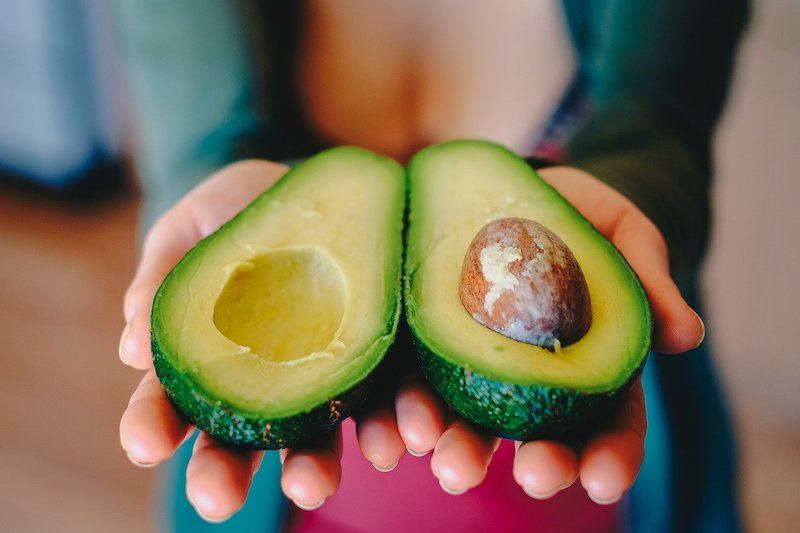
7 Tips for Successful Intermittent Fasting for Vegans
- If you can, start when you’re not under pressure, preferably a weekend or a holiday.
- In the beginning it’s easier to complete your fasting hours when you aren’t socialising or travelling.
- Get onto clean food before you start. Eating a wfpb (whole foods plant based) diet will help you remove refined sugar from your diet before you begin, which will make it much easier and more successful.
- If you don’t give up refined sugar before starting, you may get headaches at the start of intermittent fasting. Same goes with caffeine, though you can actually drink caffein during the fast if you choose. The headaches come from the D-tox effect and will go away as soon as your body adjusts. In the meantime drink plenty of water to keep hydrated and let the fasting take second place until you feel better.
- If you feel you need to eat because of a headache, do – it’s better to ease into the fasting habit and not force it. As soon as your body gets used to the new way of eating, you’ll start to feel better than ever.
- Eat a healthy balanced diet during the eating window.
- Some people struggle with the hunger when they first start intermittent fasting but this goes away after the adaptation period. Persevere through that period and drink plenty of water or hibiscus tea to make you feel more satiated.
- If it’s difficult in the beginning, be flexible. Take a month to start experimenting with it and gradually extending your fasting period. Never make it about forcing yourself. Congratulate yourself on every step forward.
- Take a vitamin B12 and a multi-vitamin supplement or as recommended specifically for you by a nutritional advisor.
FAQ for Intermittent Fasting for Vegans
#1 How Does Vegan Intermittent Fasting Work?
Normally your body burns carbohydrates to convert into energy and when there’s an excess, it gets stored as glycogen in the liver and in the muscles, or as fat in the body.
When eating a normal, high-carb diet throughout the day (with no fasting periods) the body is waiting for that regular intake of carbohydrates to convert to energy.
So when you don’t eat on time you get those hunger pangs, causing all those symptoms like rumbling stomach, irritation, hunger etc.
Some people feel faint when they get hungry.
But that’s when you’re burning carbs from your meal for your energy.
When your body goes for a longer period without food insulin levels drop and the body switches over to start burning the reserves which it has stored as fat or glycogen.
This effectively means that while in fasting mode your body will begin to burn fat as a way of making energy as fuel for your daily activities.
And that means you won’t get those hunger pangs because you’re receiving the energy you need from utilising glycogen and burning fat.
Once you’ve gone through a few days at the beginning, you’ll start to notice that you just don’t get hungry anymore. The body’s an incredible design and it knows exactly what to do.
The fasting period is a natural no-eat zone, with no suffering or struggle because your body is now efficiently burning fat. It isn’t waiting for you to feed it carbohydrates for energy.
The change in your relationship with food in astounding.
You can go from literally spending most of the day thinking about and/or planning food, to being completely liberated from it.
Added to this, because you have a limited eating window you will most probably eat less calories than you ate before.
A win all round.
#2 Will I Feel Hungry During Intermittent Fasting?
One of the surprising things about intermittent fasting is that your appetite decreases.
You disentangle from food and you stop getting cravings.
It’s quite incredible when you experience it, and it frees up so much time in the day!
Not to mention reducing your shopping costs.
In your eating window eat as much as you need and remember to focus on the quality of what you eat, not on how many calories.
Related posts of interest:
#3 What Can I Eat During the Fasting Period?
Nothing!

While you’re fasting you shouldn’t eat or drink anything that triggers digestion, so don’t go thinking that a tiny morsel of food is too small to break your fast.
Because it will. Break your fast that is.
Anything will break your fast except for water, black teas or black coffee.
Lots of water is essential to help your body function properly and it also keeps you feeling satiated.
Having said that, while you should aim for zero food, if you do have something pass your lips don’t fret.
In reality there is a tiny amount which can go undetected and not interfere with your fasting protocol.
In other words, don’t aim to eat anything at all. But if you find you’ve eaten something, don’t sweat about it.
#4 Can I East Whatever I Want in the Eating Window?
The term intermittent fasting only refers to when we eat, not what we eat, and this leads to misconceptions. The answer is yes, you can eat whatever you want, but not if you want the best results!
If our objective is to be healthy, protect against disease, increase longevity and lose any surplus fat we have been carrying around, then we need to pay attention also to what we eat.
With a shorter eating window each day, it becomes more important to eat all the nutrients you need at each meal. Avoid processed foods, refined foods, refined sugar, flour and oil.
If you eat a WFPB (whole foods plant based) diet, or a WFPBNO (whole foods plant based no oil) diet, then you’re already eating a balanced meal at each sitting. Make sure to include enough plant based protein with each meal too.
There’s no need to count calories when practising intermittent fasting.
#5 Does Hibiscus Tea Break a Fast?
Hibiscus tea won’t break a fast as long as you don’t put a sweetener in it.
Make the tea with hibiscus flowers and hot water.
You can drink any types of natural herbal teas when fasting: hibiscus, ginger, fruit teas, liquorice tea, green tea, curcuma tea: whatever flavours you like, tea could just become your new best friend.
As long as you don’t add anything to it.
And as long as it doesn’t contain any extra ingredients (I was surprised to discover that some of the Yogi teas contain wheat gluten!)
Hibiscus tea is also incredibly potent for your health, so it’s well worth including in your daily diet. In fact, you may be surprised by these 6 impressive health benefits of drinking hibiscus tea.
But you should take care because hibiscus tea lowers the blood pressure so don’t overdo it.
You can also make herbal tea or hibiscus tea in advance and chill it in the fridge to serve as a delicious glass of iced tea.
#6 Does Coffee Break a Fast?
Black coffee doesn’t break a fast.
If you want to drink a lot of it, maybe go for decaffeinated?
I like to drink a lot of black coffee in the mornings so I drink decaf and that works just fine.
#7 What does Sugar Have to Do with Fasting?
If there’s one thing that can sabotage the easy application of intermittent fasting for vegans it’s when you depend on high sugar processed foods (or alcohol, cakes, sweets etc) for your nutrition.
Apart from being less healthy than whole foods, these types of foods cause cravings.
Sugar creates an addiction.
Interestingly, you might think you crave a glass of wine in the evening, when in realty it could equally be your body craving the sugar in the wine.
As well as the difficulty of the addiction, when you start fasting you may feel less well and get headaches from the withdrawal from sugar.
So to get the best out of intermittent fasting, try adopting a whole foods plant based diet and just see how those hunger cravings vanish.
#8 Can I drink Alcohol while doing Intermittent Fasting?
You can have a glass of wine in your eating window but it will be the same as eating sugar and can make your fasting experience much more difficult.
In your fasting window alcohol will break the fast.
If you’re going out celebrating with a few drinks one evening, it’s better to eat food with the alcohol you drink and forget about your fast for that evening.
Also, if you have a heavy drinking session one evening you’re more likely to wake up hungry in the morning, another way which alcohol makes fasting more difficult.
So if you’re wondering whether you can fast with a hangover, the answer’s a reluctant yes, but you probably shouldn’t. Because you’ll just be setting yourself up for more pain and/or failure.
Instead, just let yourself eat on these occasions and postpone your fast till a day later.
Choose to give up alcohol or keep it for special occasions. The sugar in alcohol acts to sabotage your fasting period in just the same way as eating high sugar foods does.
As well as causing all the other health issues associated with alcohol.
Final Tips for Intermittent Fasting for Vegans
- Be easy on yourself and flexible with your rules. The wonderful thing about this lifestyle choice is that your life comes first. This just naturally slots into your (new) rhythm. For example, if you choose 11am to 7pm and then you find yourself in a situation where you’re going to meet friends at 8 p.m. for a bite to eat. You can either move your morning food to a later time, or you can just eat in a longer window on this occasion. Accept it and move on. No problem.
- I really recommend you embrace this as a way of life, not as a quick-fix weight loss plan. In fact you can lose weight or you can maintain your weight. This is a sustainable way of living which you help you feel healthier and more energetic.
- If you don’t feel wonderful after doing intermittent fasting for a couple of weeks, you might want to question whether you’re making mistakes with your practice because when you get it right and if it suits you, you will feel wonderful.
- Don’t try intermittent fasting if you’re pregnant, diabetic, or have other health issues which might be negatively affected by fasting.
- Remember to drink lots of water, all day long.
Conclusion on this Guide to Intermittent Fasting for Vegans
My experience of intermittent fasting has been completely positive. My appetite is dormant. I enjoy eating when I eat and I’m completely satisfied when I’m not eating.
I have no cravings and no mood swings.
Those waves of exhaustion I used to feel after eating are no longer a part of my life.
My fatigue is a thing of the past.
I hope you give it a try and I wish you much success! If you find this post helpful please share it!


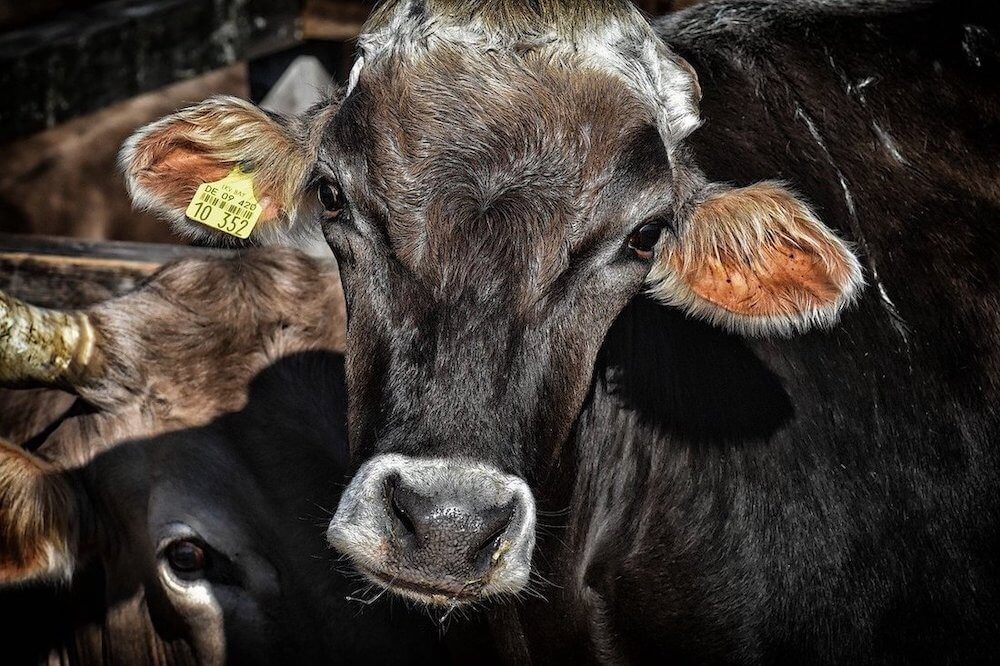
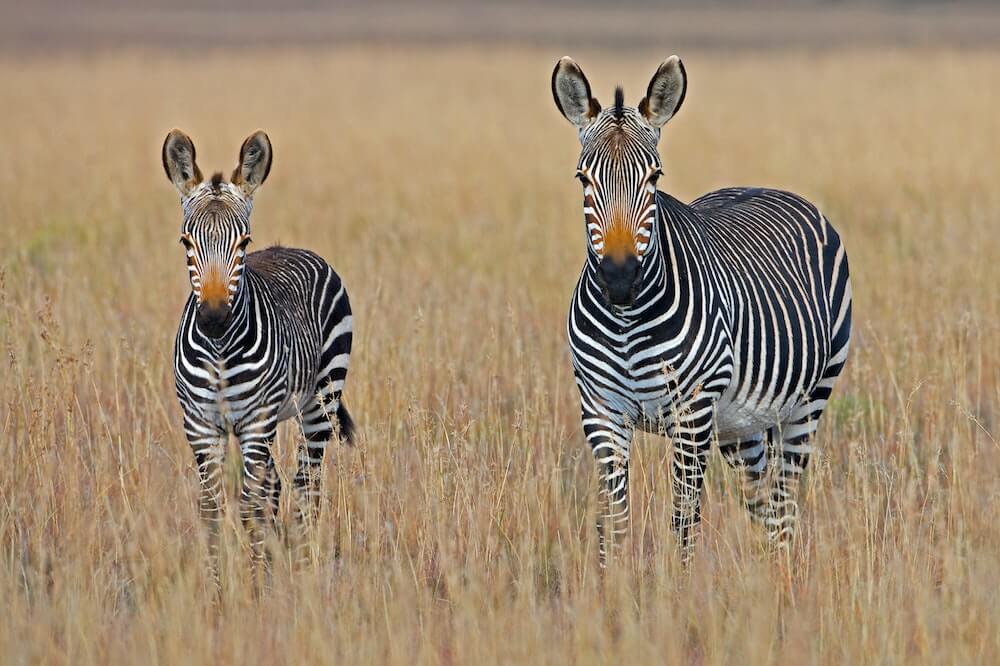
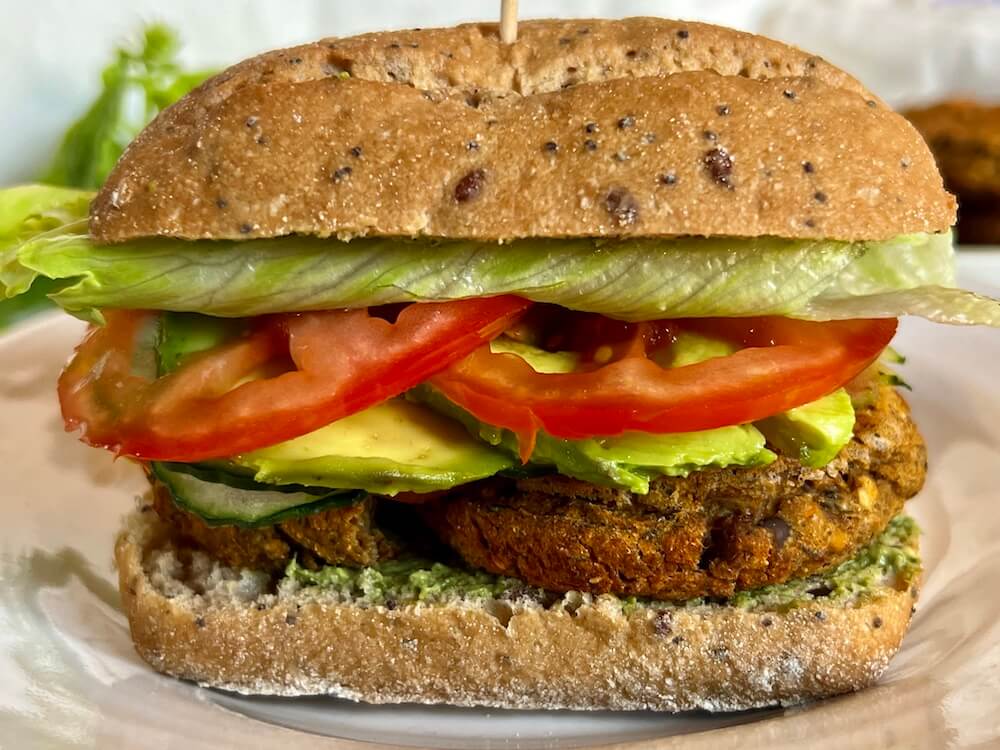

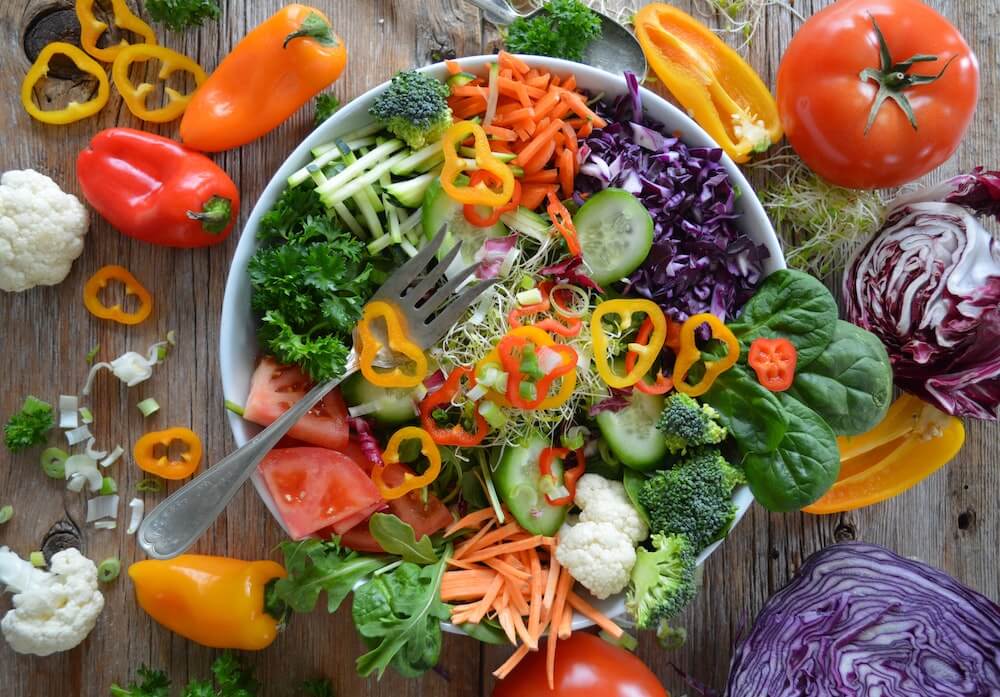


Do bitters break your fast? I took Zoiben for the past few days a drop here and there to curb my hunger since I’d read that monks have been doing it for millenia(it works)…Just curious if that triggers digestion or not though and thus makes many of the benefits null?
Hi Ken,
Zoiben isn’t a product which I have used, but the most likely answer is that yes, it would trigger digestion, as it is based on various oils. Whether that makes the benefits null will depend on what you’re hoping to achieve and your individual situation. If your goal is intermittent fasting, I wouldn’t personally take Zoiben during the fasting period, as triggering the digestive system will be counterproductive.
What’s more, once your body adjusts to intermittent fasting, you’ll find that your hunger levels also drop during that time. That’s one of the beauties of intermittent fasting! Good luck!